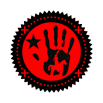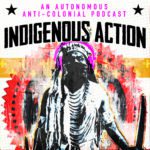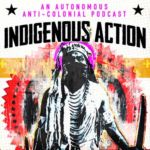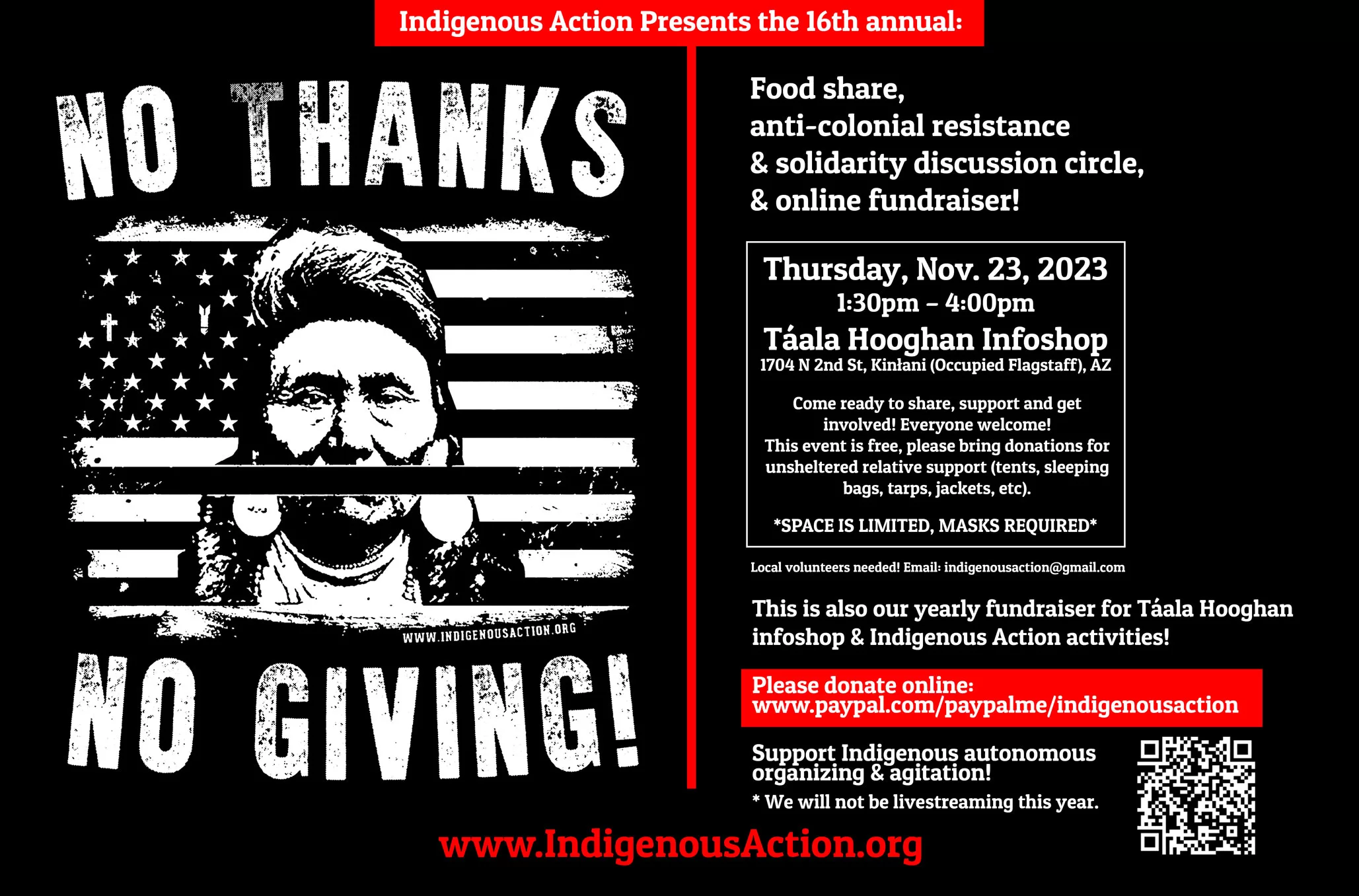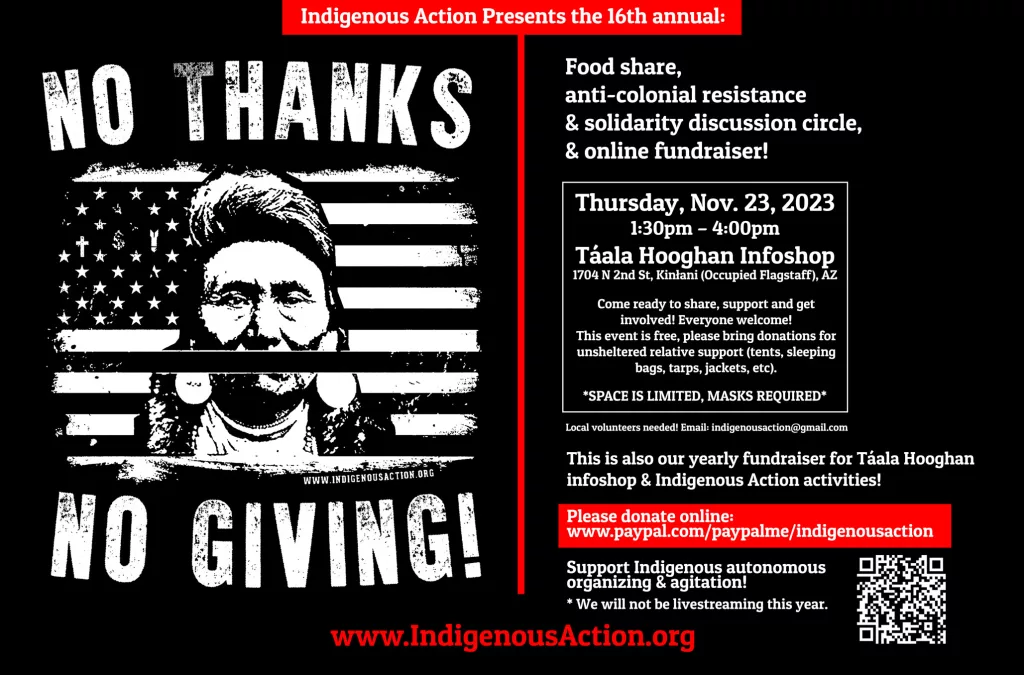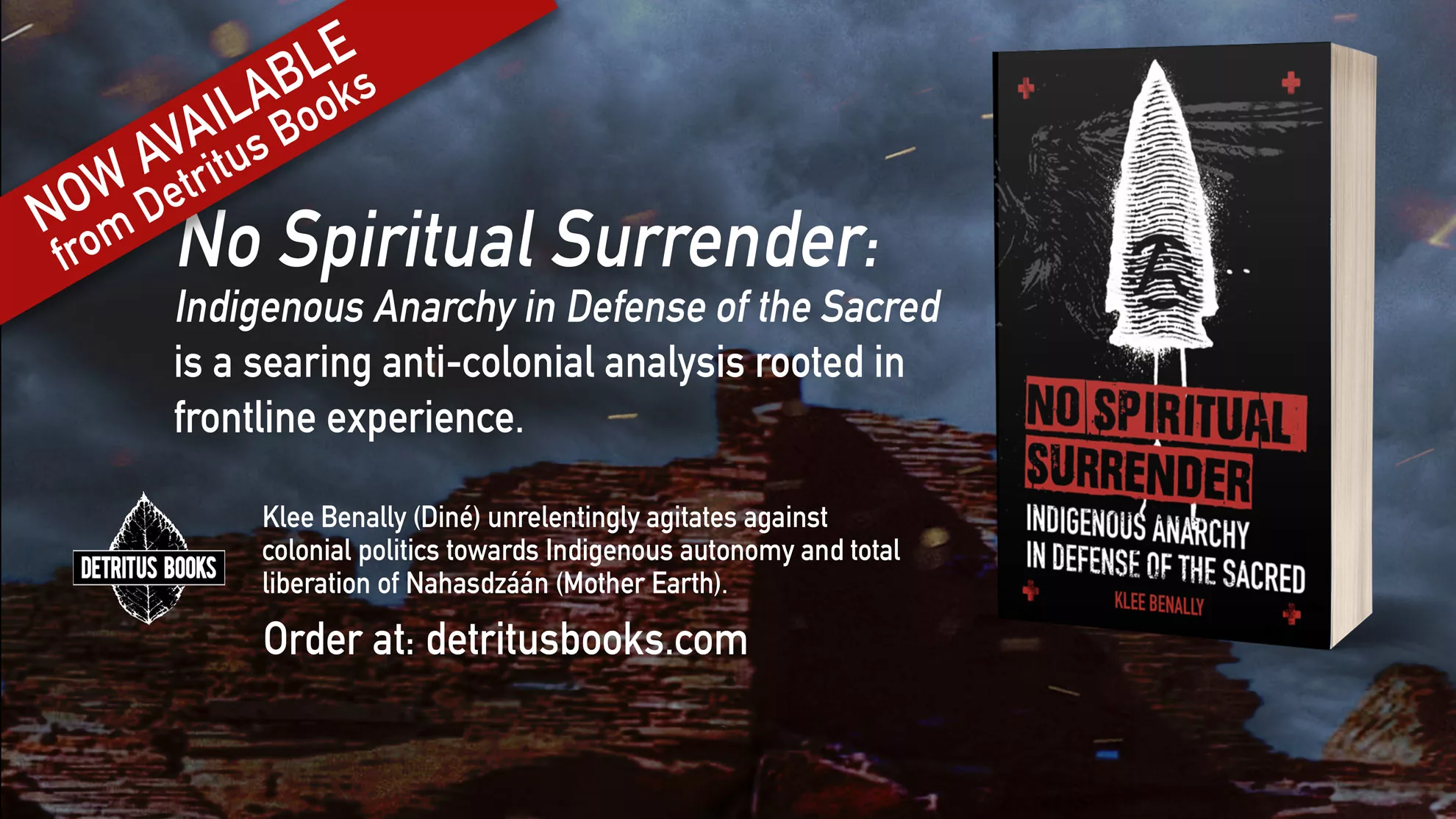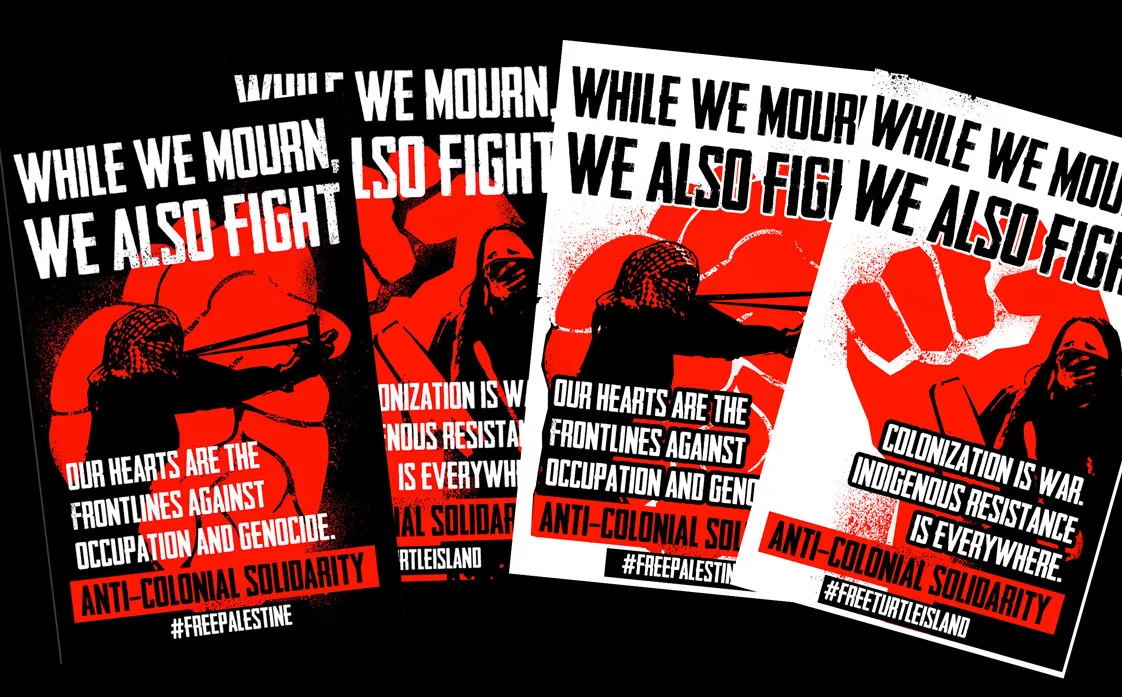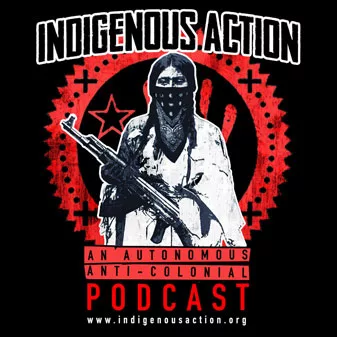anti-colonial
Indigenous Action Podcast Ep. 1: Acknowledge This!
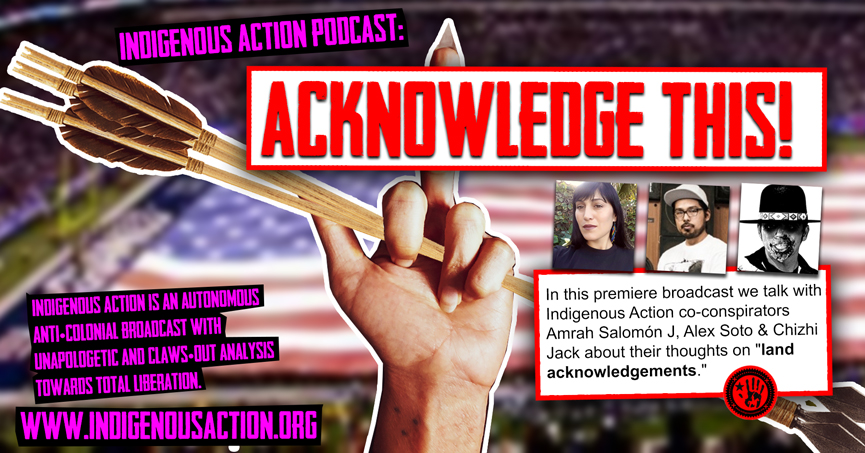
anti-colonial
16th Annual No Thanks, No Giving!
anti-colonial
New Book: No Spiritual Surrender, Klee Benally
New Book: No Spiritual Surrender: Indigenous Anarchy in Defense of the Sacred is a searing anti-colonial analysis rooted in frontline experience.
anti-colonial
Anti-Colonial Solidarity with Palestine Posters: While we mourn, we also fight.
-

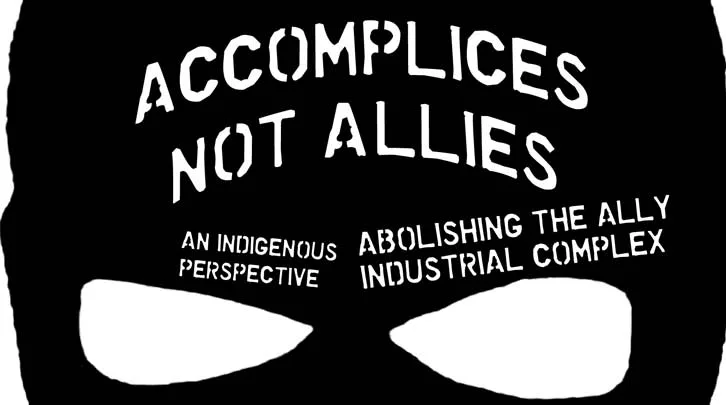

 Commentary & Essays10 years ago
Commentary & Essays10 years agoAccomplices Not Allies: Abolishing the Ally Industrial Complex
-

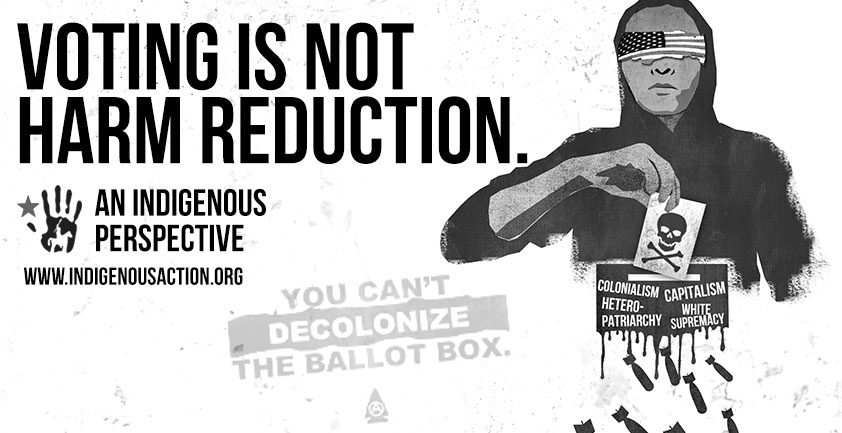

 anti-colonial4 years ago
anti-colonial4 years agoVoting is Not Harm Reduction – An Indigenous Perspective
-

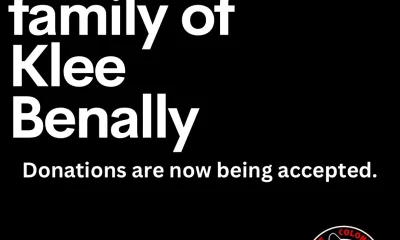

 Feature Front7 months ago
Feature Front7 months agoThe family of Klee Benally thanks you for the donations!
-



 anti-colonial4 years ago
anti-colonial4 years agoRethinking the Apocalypse: An Indigenous Anti-Futurist Manifesto
-



 #nonukes11 years ago
#nonukes11 years agoIndigenous Elders and Medicine Peoples Council Statement on Fukushima
-

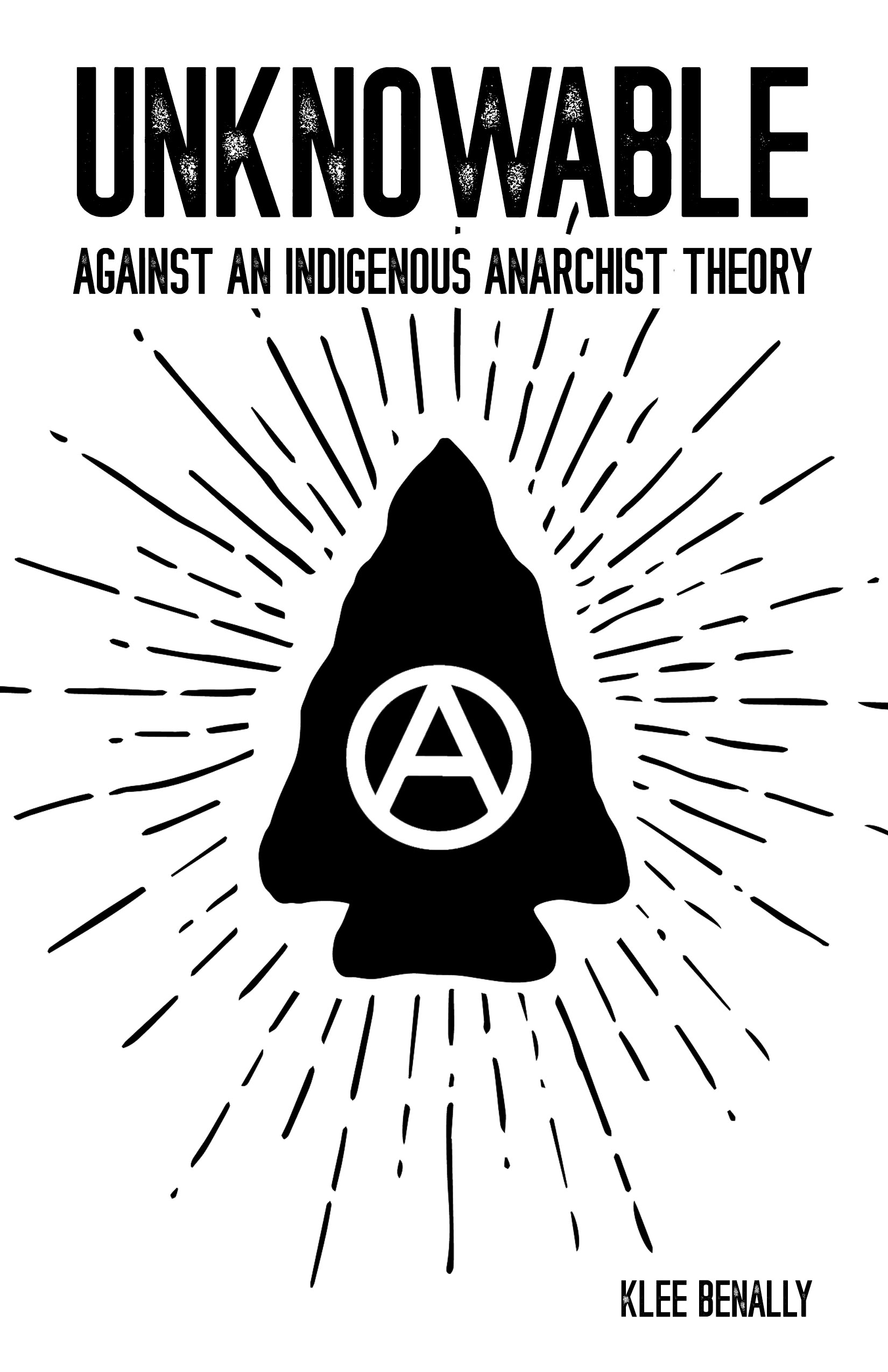

 anti-colonial3 years ago
anti-colonial3 years agoUnknowable: Against an Indigenous Anarchist Theory – Zine
-

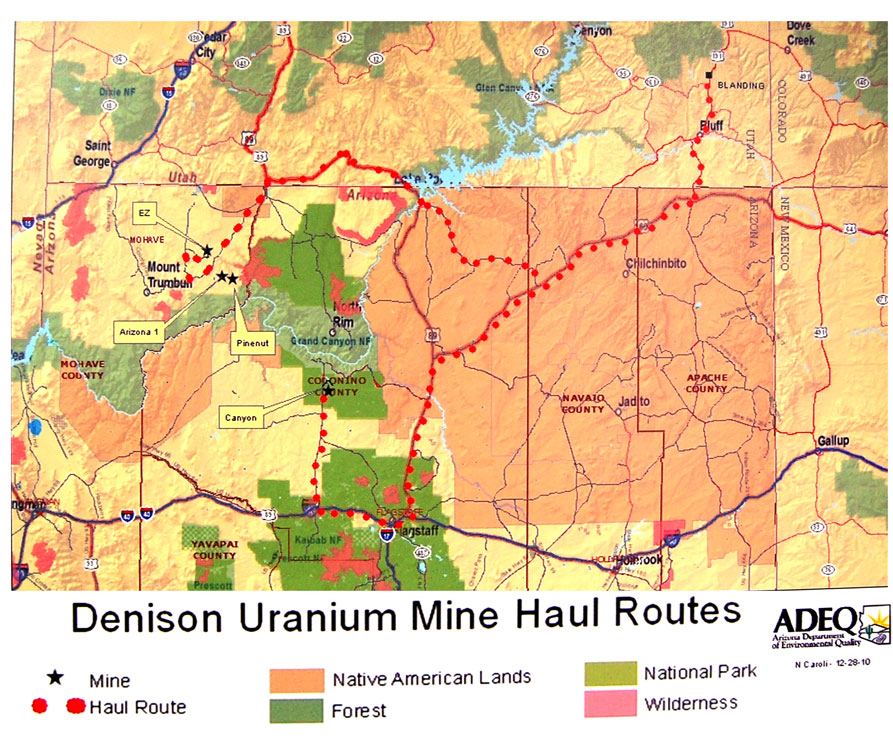

 #nonukes14 years ago
#nonukes14 years agoUranium Mining Begins Near Grand Canyon
-

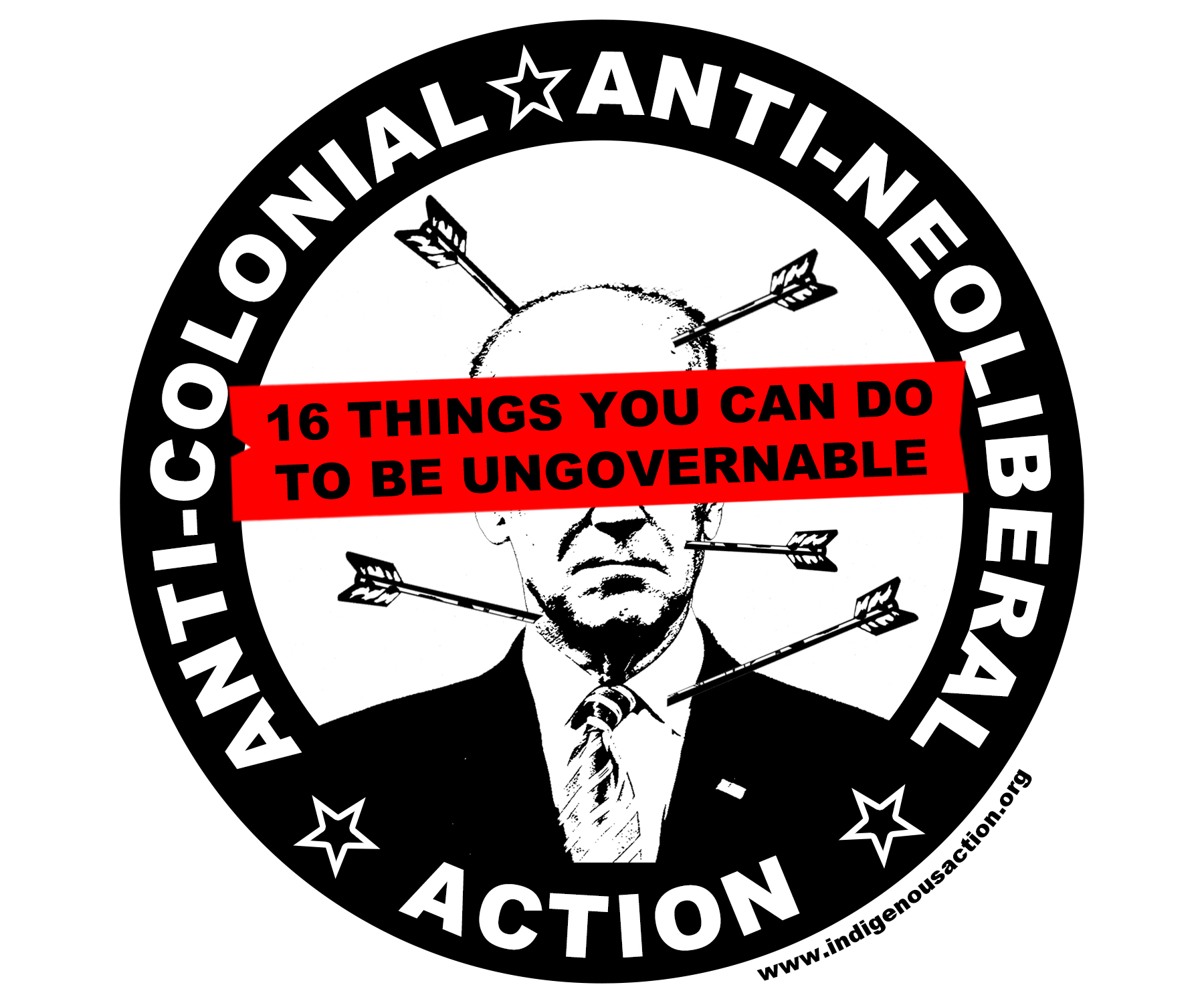

 #policestate4 years ago
#policestate4 years ago16 Things You Can Do To Be Ungovernable. P.S. Fuck Biden
